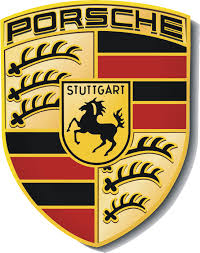911 GT2 (996) F6-3.6L Turbo (2003)
/f6-3.6l_turbo/Page-604002.png)
C. End of service life of friction area surface or after highest load on a racing track.
^
Replace brake discs in the case of connected friction surface damage > 1 cm2.
2. Checking brake discs for minimum thickness
Note.
^
For perforated brake discs, the minimum thickness must always be measured on the inner or outer friction surface trace.
^
Brake disc thickness/wear limit: Maximum 0.5 mm total wear permissible. Refer to the technical data for the new dimension and other
dimensions - Rep. Gr. 46; Technical data/wear limits -GT2 or Turbo with PCCB.
^
Measure the brake disc thickness dimension - X-, with a suitable micrometer screw or a brake disc gauge in the area of the inner and outer friction
surface traces -arrow-.
3. Checking brake discs for edge damage
Note.
^
Irrespective of wear, a brake disc change can be necessary on the brake disc friction surfaces due to edge damage.
^
In this case, only one brake disc can be replaced if the friction area surface of the other PCCB brake disc is in order.
The following criteria applies to edge damage assessment:
^
Maximum permissible width/depth = 2 mm.
^
Maximum permissible length = 10 mm.
^
Maximum 3 damaged edge areas permissible.
Note concerning bores (perforations in the brake disc friction surface
Caution. PCCB (Porsche Ceramic Composite Brake): Damage of material damage (danger of damage to the brake discs) if improper work is
performed on the bores in the brake disc friction surface.
^
Clean the bores on PCCB brake discs with high-pressure cleaning equipment only if necessary). In doing so, observe the environmental and safety
regulations.
^
Do not machine (boring or countersinking is not permissible).
